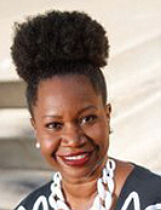A history of abuse, neglect and torture surrounds Black women’s maternity and mortality
Kat Stafford/The Associated Press | 6/29/2023, 6 p.m.
For decades, frustrated birth advocates and medical professionals have tried to sound an alarm about the ways medicine has failed Black women. Historians trace that maltreatment to racist medical practices that Black people endured amid and after slavery.
To fully understand maternal mortality and infant mortality crises for Black women and babies, the nation must first reckon with the dark history of how gynecology began, said Deirdre Cooper Owens, Ph.D., a historian and author.
“The advancement of obstetrics and gynecology had such an intimate relationship with slavery, and was literally built on the wounds of Black women,” Dr. Owens said.
Reproductive surgeries that were experimental at the time, like cesarean sections, were commonly performed on enslaved Black women.
Physicians like the once-heralded J. Marion Sims, an Alabama doctor many call the “father of gynecology,” performed torturous surgical experiments on enslaved Black women in the 1840s without anesthesia.
And well after the abolition of slavery, hospitals performed unnecessary hysterectomies on Black women, and eugenics programs sterilized them.
Until Congress passed the Civil Rights Act of 1964, Black families were mostly barred from well-funded white hospitals and often received limited, poor or inhumane medical treatment. Black-led clinics and doctors worked to fill in the gaps, but even after the new protections, hospitals once reserved for Black families remained under-resourced, and Black women didn’t get the same support available for white women.
That history of abuse and neglect led to deep-rooted distrust of health care institutions among communities of color.
“People need to stop thinking about things like slavery and racism as just these features that happened that are part of the contours of history and maybe think of them more as foundational and institutions that have been with us every step of the way,” said Rana A. Hogarth, Ph.D., an associate professor of History at the University of Illinois, Urbana-Champaign.
Some health care providers still hold false beliefs about biological differences between Black and white people, such as Black people having “less sensitive nerve endings, thicker skin, and stronger bones.” Those beliefs have caused medical providers to rate Black patients’ pain lower, and recommend less relief.
The differences exist regardless of education or income level. Notably, the pregnancy-related mortality rate for Black women with a college education is 1.6. times higher than that of white women with less than a high school degree.
Angelica Lyons’ traumatic birth experience was not the only one in her family. After two miscarriages, her younger sister, Ansonia, became pregnant in 2020, and it was difficult.
Doctors told her she was suffering from regular morning sickness, though she was vomiting blood.
She was eventually diagnosed with an excessive vomiting disorder, hyperemesis gravidarum, and was dehydrated. Ansonia Lyons spent months in and out of the same hospital where her sister was treated.
Ms. Lyons has Type 2 diabetes and had issues with her blood pressure and heart throughout the pregnancy. She started to see a cardiologist and by the time she was 21 weeks pregnant, she was diagnosed with congestive heart failure. She was placed on medication, and her doctors decided to deliver the baby early via C-section.
Ms. Lyons was scared, given everything she witnessed her sister go through nearly two years prior.
“There were several times I told my boyfriend that I thought that I was going to die,” she said.
The C-section went well. Ansonia Lyons’ son, Adrien, was due in July 2021 but he was born at the end of May.
He spent his first five days in the intensive care unit, then was hospitalized for another two weeks for some early breathing problems. Problems continued for Ms. Lyons after the delivery. She needed a blood transfusion and was unable to see her son for his first few days of life.
A few months postpartum, she was still vomiting and having fainting spells that led to her being admitted to the hospital off and on. Her arms suffered from bruising from needles used to treat her throughout the pregnancy. She had always been slow to heal from any bruising, a common problem for diabetics.
Yet a doctor who had been involved throughout her pregnancy questioned why she had bruises on her arms and asked if she “smoked weed” or took recreational drugs. The hospital declined to comment, citing patient privacy laws.
“I said, ‘This is from me being stuck so many times and having to be in the hospital.’ I told him I don’t do any drugs,” she said.
There are indications that the sufferings of Black mothers and their babies are being recognized, however late.
In 2019, U.S. Rep. Lauren Underwood, an Illinois Democrat, and Rep.AlmaAdams, a North Carolina Democrat, launched the Black Maternal Health Caucus. The caucus introduced the Black Maternal Health Momnibus Act in 2019 and again in 2021, proposing sweeping changes that would increase funding and strengthen oversight. Key parts of the legislation have been adopted but the bill itself has yet to be approved.
President Biden’s budget for fiscal year 2024 includes $471 million in funding to reduce maternal mortality and morbidity rates, expand maternal health initiatives in rural communities, and implicit bias training and other initiatives.
U.S. Secretary of Health and Human Services Xavier Becerra told The Associated Press more must be done to root out racism and bias within health care.
“We know that if we provide access to care for mother and baby for a full year, that we probably help produce not just good health results, but a promising future for mom and baby moving forward,” he said.







